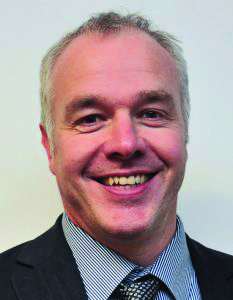Pay rises for support staff are crippling academy trusts that have specialist provision schools – with one trust facing almost £670,000 in additional costs.
Heads say the government is treating alternative provision (AP) and special educational needs schools as the “forgotten sector” by failing to fund salary increases for the support staff they rely on.
Wellspring Academies, which has 20 schools, including three special needs school and six AP schools, has revealed it had to find £669,000 to fund pay increases for non-teaching staff this year.
It follows the Department for Education award of an up to 3.5 per cent pay rise for classroom teachers this year and next, with schools expected to contribute the first 1 per cent with the government covering the rest.
However, non-teaching staff, who are covered by local government pay arrangements, were awarded a 2 per cent rise last April, subject to local authority and academy trust agreement, with another 2 per cent for next year – but with no extra funding.
Alternative provision and special educational needs schools are particularly affected because they rely on a higher percentage of non-teaching staff than mainstream.
Dave Whitaker, executive principal at Springwell special and alternative academy, a Wellspring school in Barnsley, said the government was treating specialist provision as “the forgotten sector.

“We always feel like we are an afterthought. Processes such as pay rises are set up with mainstream in mind.
“Without any uplift in funding, it’s costing us hundreds of thousands as non-teacher pay rises had to come from our own budget.”
One Wellspring school paid £142,000 in salary rises for support staff, who make up 88 per cent of its workforce, Whitaker said.
The 2 per cent award agreed last April was for support staff on £19,430 a year or higher, “with those on lower salaries receiving higher increases”, guidance on the National Education Union’s website says.
“We’ve got a lot of staff under that salary, so the pay rise is a lot for us,” Whitaker said.
“These are highly skilled people, but we need more funding so we can pay them more.”
Edward Timpson’s review into exclusions, published on Tuesday, recommended the government improve the quality of AP, and in particular “ensure AP schools can attract the staff they need”.
But now heads of AP schools say the unfunded pay rises for non-teachers will force them to cut staff numbers, rather than to recruit more.
Debra Rutley, executive head at the Aspire AP academy in Buckinghamshire, said she spent £50,000 on support staff pay rises this year.
“The government needs to realise AP isn’t just full of teachers. We’ve got instructors, therapists and behaviour support staff.”
Next year’s pay award will cost her £68,000, meaning the school may have to reduce staffing.
The government needs to realise AP isn’t just full of teachers
“That has a massive effect, as the first people to go are the non-teaching staff like behaviour support, which then becomes a health and safety issue.”
Simon Knight, co-headteacher at the Frank Wise special educational needs school in Oxfordshire, said he paid “more than double” for support staff pay rises than the £13,000 for teaching staff.
“It is not right that schools continually have to pay the cost of this unfunded government policy.”
Rob Gasson, the chief executive of the Wave multi-academy trust, which has 10 AP schools in Cornwall and Devon, said his support staff budget was £3 million a year, making any pay increase “more and more difficult” to fund.
A DfE spokesperson said the national high-needs budget was £6 billion this year. An additional £250 million was announced for this and last year to help local authorities “manage their cost pressures, including paying for all staff in special schools and alternative provision”.








Your thoughts